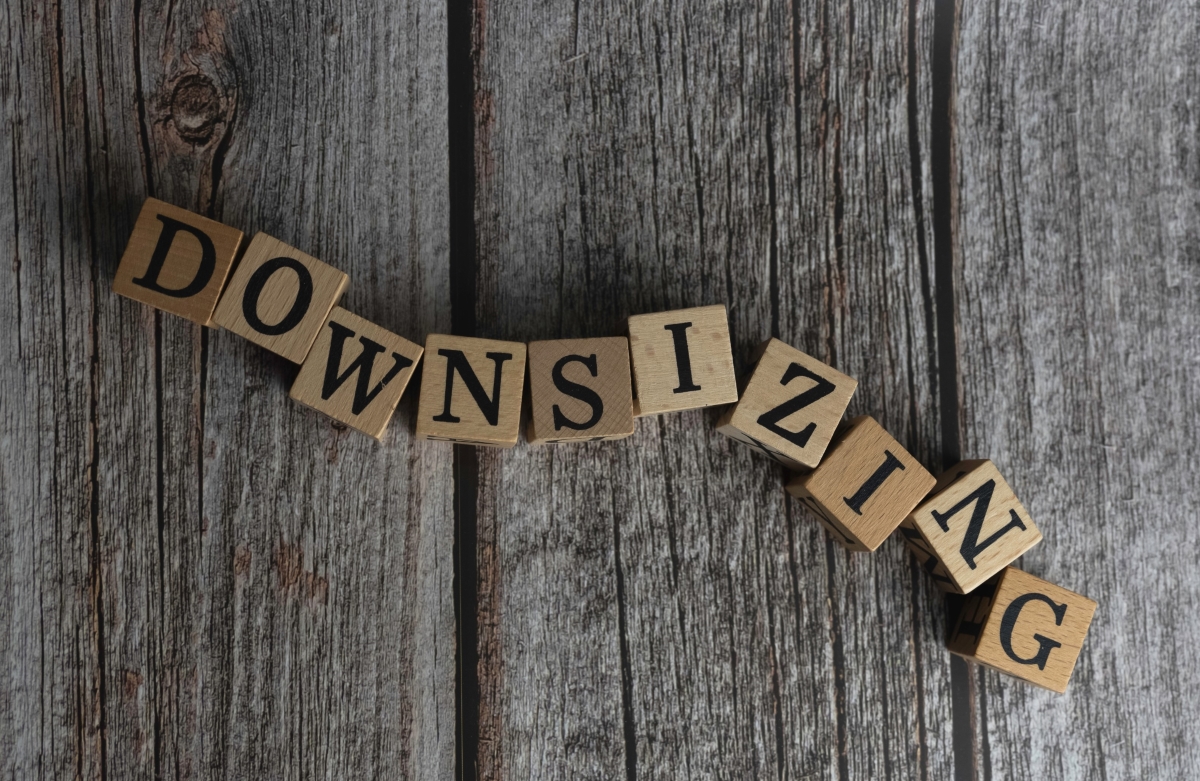Should Seniors Consider Downsizing to Save Money in Retirement?

As retirement approaches, many seniors reflect on how to make their savings last and improve their quality of life. One strategy that often comes up is downsizing. Downsizing or moving to a smaller home can be a smart financial move that offers several benefits. However, weighing these benefits against potential challenges is important to determine if it’s the right decision for you. In this comprehensive guide, we will explore the advantages of downsizing, considerations to keep in mind, and practical tips to help you make an informed decision.
Understanding Downsizing

Downsizing typically involves selling your home and moving to a smaller, more manageable residence. This change can come with various benefits, from financial savings to reduced maintenance responsibilities. Here’s a deeper look at what downsizing entails:
- Reduced Housing Costs: Moving to a smaller home often means a smaller mortgage or even eliminating mortgage payments. Lower property taxes, reduced insurance premiums, and decreased utility bills can all contribute to significant monthly savings.
- Less Maintenance: A smaller home usually requires less upkeep. Fewer rooms mean less cleaning, fewer repairs, and lower lawn care and maintenance costs. This reduction in maintenance can translate into more free time and less stress.
- Increased Liquidity: By selling a larger home and purchasing a smaller one, you can free up cash previously tied up in real estate. This liquidity can bolster your retirement savings, cover unexpected expenses, or fund other activities you enjoy.
Benefits of Downsizing

- Financial Savings: The financial benefits of downsizing can be substantial. A smaller or no mortgage can significantly impact your monthly budget. Lower property taxes and insurance premiums can further enhance your financial stability. Additionally, downsizing can reduce your overall cost of living, allowing you to allocate funds to other areas of your life.
- Simplified Living: Downsizing often leads to a simpler lifestyle. A smaller home means fewer belongings, which can reduce clutter and streamline your life. Less space also means less time spent on chores and maintenance, giving you more time to focus on activities you enjoy.
- Improved Accessibility and Safety: Navigating stairs or maintaining a large yard can become challenging as we age. Moving to a single-story home or one with accessibility features can improve your safety and comfort. This can be especially important if you have mobility issues or plan to age in place.
- Closer Proximity to Family and Services: Downsizing can also offer the opportunity to move closer to family or essential services. Being near loved ones can provide emotional support, while proximity to medical facilities, shopping centers, and recreational activities can enhance your convenience and quality of life.
Considerations Before Downsizing

- Emotional Impact: Moving from a home where you’ve built a lifetime of memories can be emotionally challenging. It is important to consider how the move might affect you and your family. Reflect on your attachment to your current home and discuss the move with loved ones to ensure everyone is on board and to ease the transition.
- Cost of Moving: While downsizing can offer long-term financial benefits, it’s crucial to account for the costs of selling and buying a home. These costs can include real estate agent fees, moving expenses, and potential renovations to make the new home suitable. Be sure to factor these expenses into your decision-making process.
- Choosing the Right Home: Finding a new home that meets your needs and preferences can take time. Consider factors such as location, accessibility, and amenities. Ensure that the new home aligns with your lifestyle, plans, and any special requirements you may have.
- Market Conditions: Real estate market conditions can affect the timing and financial benefits of downsizing. Research the housing market in your current location and desired area to determine if it’s a good time to buy and sell. Understanding market trends can help you make a more informed decision.
- Future Needs: Consider how your needs might change in the future. For example, if you anticipate needing more medical care or assistance, ensure the new home is equipped to accommodate these needs. A home with accessible features or proximity to healthcare facilities may be more suitable in the long run.
Practical Tips for Downsizing

- Start Early: Begin the downsizing process well in advance. This gives you time to declutter, sort belongings, and decide what to keep, donate, or sell. Starting early can also reduce stress and help you make more informed choices.
- Create a Plan: Develop a detailed plan for the move, including a timeline, budget, and list of tasks. A well-organized plan will help keep you on track and ensure nothing is overlooked. Consider working with a moving coordinator or professional organizer if needed.
- Seek Professional Advice: Consult with real estate agents specializing in senior relocations. They can provide valuable insights into the market, help you find a suitable new home, and guide you through the selling and buying process. Additionally, a financial advisor can help you evaluate the financial implications of downsizing.
- Consider Renting: If you’re unsure about committing to a new home, consider renting for a while. Renting can allow you to explore a new area and determine if it’s the right fit for you before making a permanent move.
- Get Family Involved: Involve family members in the decision-making process. Their support can be invaluable, and they can offer helpful perspectives on the move. Family involvement can also make the transition smoother and more enjoyable.
- Plan for the Long Term: Consider how downsizing fits your long-term plans. Consider factors such as future healthcare needs, proximity to family, and the potential for future mobility challenges. A well-thought-out plan can help ensure that your new home continues to meet your needs in the future.
Making the Decision

The decision to downsize should be based on your personal circumstances, preferences, and financial goals. Downsizing can offer numerous benefits, including financial savings, simplified living, and improved accessibility. However, it’s essential to carefully evaluate all factors before making a move.
Consider consulting with professionals, reflecting on your attachment to your current home, and assessing your future needs. By taking a comprehensive approach to downsizing, you can enhance your retirement experience and enjoy a more manageable and fulfilling lifestyle.
Downsizing is not just about moving to a smaller space; it’s about creating a more comfortable and financially secure retirement. With thoughtful planning and careful consideration, you can decide to align with your goals and enhance your quality of life in retirement.





